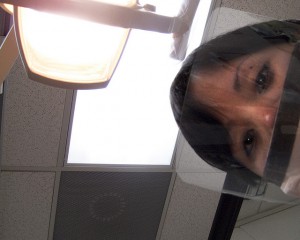My dentist approached the chair to crown one of my favorite teeth. I am a retired orthopaedic surgeon—and a fearful dental patient. I smiled sadly, and opened.
This is just some anesthetic gel, she said, and tucked a swab up where she was going to work. I nodded my understanding. She has good hands; over the years she has done what I have needed done without hurting me much. But I don’t like that ‘just.’
When she removed the swab, I proposed a challenge. Could you get through a day of patients without saying ‘just?’ She grinned. I can get through one patient, she said—but moments later, syringe in hand, she said, This is just the Novocain…
I, too, learned to say ‘just’ to my patients before I did things to them, especially when they were frightened or I thought I might hurt them. My teachers—IV techs, nurses, interns, residents, attending surgeons—set that example, both when we worked on the wards together and when they worked on me. Under the guise of informing the patient of what was coming, they assuaged their own discomfort with causing pain. But saying ‘just’ felt wrong to me, and when I was the patient I experienced such utterances from caregivers as phony, self-serving rather than helpful.
Good old Dr. Anderson, my childhood pediatrician, had white hair, pink cheeks, and rimless glasses. When I needed an inoculation, he absented himself from the room before his nurse wielded the needle. My parents praised that practice to their friends in my presence. The doctor doesn’t want the children to be afraid of him, they explained.
How dumb did they think I was? I knew who had given the order to hurt me, and contemned the adult who presumed not only to cause me pain, but also to deceive me about its author. His employment of another to stick me was the same kind of lie as my dentist’s needle-stick-minimizing ‘just.’
We doctors who do hateful things to patients hold postgraduate degrees in deferral of gratifications, so we believe that the patient’s long-term best interest justifies the pain or humiliation or expense we inflict. Or we mostly believe it. The part of us that fears pain ourselves or shrinks from inflicting it, the part of us our own aggression scares, wants to get past that as quickly as possible and return to being the kind healer everyone loves.
I find that ‘just’ counterproductive because even a child knows better. Unspun information builds better confidence: ‘This is an anesthetic gel to make the needle-stick for the Novocaine hurt less.’ To offer that truth shows the patient respect as it spares him the fear of the bigger, sharper, unqualified whatever-it-is we have up our sleeve—if we can just do it.
Photo courtesy of Robert Couse-Baker.
